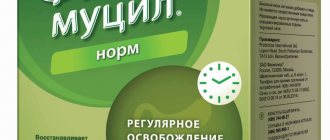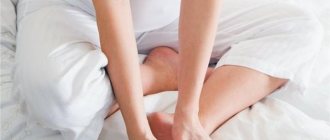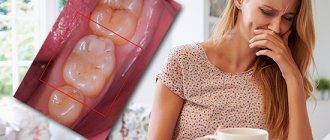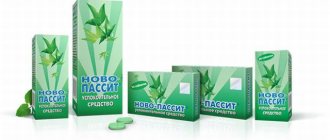During pregnancy, a woman experiences many amazing changes. The frantic dance of hormones and the total restructuring of the body cannot remain externally noticeable even in the earliest stages. The skin may get better or worse, but the fact that it will change is certain. In addition, the expectant mother has many questions about whether all cosmetics and procedures are safe for the baby.
So, pregnancy requires a woman to build a completely new system of self-care. We have made a special series of posts on how to stay beautiful and well-groomed and not harm your baby.
In this post, we will look at which components of cosmetics cannot be used during pregnancy and why, and talk about how an expectant mother can choose safe cosmetics.
How can aromatherapy help pregnant women?
Essential oils help:
- to handle the stress;
- relax and develop a positive outlook on the future;
- relieve fatigue, reduce pain during labor,
- reduce the duration of labor and make it easier;
- eliminate minor ailments, prevent toxicosis;
- prevent the appearance of stretch marks;
- restore the body faster after childbirth;
- increase lactation.
Any therapy must be safe for both mother and child. The main principle - “do no harm” - must be applied to essential oils, because there is no accurate data on the level of danger of all oils. And since essential oils pass through the skin and placenta to the baby, pregnant women need to be very responsible and careful when using aromatherapy.
Harm of chlorine to the body
Bleach can affect the body in various ways, so it is used with extreme caution and with the use of protective equipment. For pregnant women, it is generally not recommended to touch it in its pure form, and use is allowed only while swimming in the pool and using certain detergents.
In general, chlorine is dangerous for humans in the following cases:
- Entering the body in its pure form through the mouth (extreme danger, mortality occurs in 90% of cases);
- Inhalation exposure in the form of vapor occurs at elevated concentrations of the substance;
- Contact with skin may cause burns and irritation of varying degrees;
- When reacting with other components, it turns into dangerous acids and can cause cell corrosion.
Pregnant women are often interested in the question of whether bleach affects the fetus. There are no precise data on direct effects. No structural or functional changes in fetal development were observed under the influence of chlorinated vapors. However, the element can have an extremely difficult impact on a pregnant woman and worsen her general condition. As a result, this process can affect the pregnancy process.
What oils should not be used by pregnant women?
The following oils should not be used during pregnancy: angelica, anise seed, basil, cloves, oregano, jasmine, hyssop, camphor, Atlas cedar, cinnamon tree, marjoram, lemon balm, myrrh, juniper, pennyroyal, parsley, tarragon, rosemary, thyme, fennel, savory, clary sage.
Do not use highly toxic (poisonous) oils - calamus, arnica, thuja, rue, American laurel, wormwood, pennyroyal, Cossack juniper, mustard, horseradish, tansy, wormwood, bitter almond.
During pregnancy, during the first 4 months, it is necessary to avoid oils that regulate the menstrual cycle and increase the tone of the uterus, which can lead to the threat of miscarriage. These include oils: roses, lavender (in large doses), chamomile, geranium, mint, rosemary, fennel, cypress, tea tree .
Starting from the 5th month of pregnancy, these oils (see table) can be used in a 1-1.5% solution for massage, and for baths - no more than 3-4 drops. If you have had miscarriages in the past, then these oils should not be used during the entire period of pregnancy.
Types of humidifiers
The modern market offers a huge range of such devices. Therefore, many buyers are confused when choosing one or another option. It is important to know the main thing - what types of humidifiers exist.
- Traditional options. This device works based on the simplest principle: water is poured into the model’s container, and then falls on the element, which produces evaporation. With the help of a fan, air is released, due to which humidification occurs. This model has a number of advantages, since it does not create noise, and it is also economical and easy to use. But in order to ensure efficient operation, it is necessary to install a heating device nearby - only then the temperature in the room will be within normal limits.
- Steam. The operating principle of this model is completely different from the standard options. In this case, special electrodes are built into the design, which heat the water to maximum temperature, and then the water simply turns into steam. After the liquid has completely evaporated, the device simply turns off. The steam coming out of the model is too hot, so a humidifier for the home is, of course, suitable, but it cannot be installed in a child’s room.
- Electrosonic. Such devices are very popular because, if we take into account the opinion of doctors, they are the most effective. The principle of operation is that water is pumped onto a plate, which vibrates and creates a cloud of moistened steam. High performance and safety in use also influence the rather high cost of air humidifiers of this type.
We recommend that you read: Choosing an ultrasonic humidifier
What oils can be used during pregnancy
There are oils that can be used in the early stages of pregnancy.
For nausea in the morning, one drop of peppermint applied at the head of the bed before bed will help.
For vomiting and nausea during the day , as well as to improve (appear) appetite, you need to carry an aroma pendant or handkerchief with one drop of ginger oil and sniff it if necessary.
If you suffer from nausea and vomiting during the day , then to prevent it, rub one drop of ginger essential oil, diluted with a teaspoon of any base oil, into an area measuring 5 by 5 cm above the navel in the morning.
When using oils, be aware of how you feel. If the oil you used before pregnancy now causes nausea, stop taking it.
Even if the use of essential oils improves your well-being, do not violate or increase the dosage and duration of the procedures.
Dosages of essential oils for pregnant women can be taken from the instructions for essential oils, reducing them by 2 times or strongly diluting them in the base oil to 1-1.5% solution, which corresponds to 2-3 drops of essential oil and 10 ml (200 drops) of the base oil.
Chlorine: scientific data
Bleach is the general name for an antiseptic, the key component of which is the chemical element chlorine. It is a white powder with a strong unpleasant odor. This is an indispensable antibacterial component for many years.
Chlorine in its pure form is not used in domestic conditions. It is a bright green liquid that dissipates extremely quickly. Therefore, it is kept in an airtight container under pressure. A slight increase in temperature can cause leakage, and chlorine is explosive and flammable. In addition, this element is capable of reacting with many chemical components.
In domestic conditions, chlorine concentrate is better known - bleach. This white powder is used very often, but in moderation. Even a low concentration of a chemical can lead to poisoning of others.
Today, the use of bleach has decreased significantly; much attention is paid to its effect on the human body, so its use occurs under strict control. But still, bleach is indispensable today in the following cases:
- Disinfection of drinking water in city water supplies;
- Disposal of industrial waste and effluents;
- Antiseptic treatment of public water places: swimming pools, saunas;
- In industry for the production of detergents and cleaning products;
- In industry as a bleaching component.
At home, people encounter more chlorine when using various cleaning and laundry products. It is difficult to weigh the benefits and harms of using this product. But for pregnant women, doctors recommend reducing contact for safety reasons.
Essential oils during pregnancy
Table of essential oils for problems during pregnancy
| Problem | Pregnancy period | Essential oils | Mixtures | Way |
| Pain in the back, legs, ligaments | from 5th month | lavender, incense, geranium, ginger, rose | Add 1k incense + 1k ginger + 1k rose to 10 ml of base oil | compress, baths, massage |
| Convulsions | from 5th month | lavender, geranium | 2k lavender + 2k geranium per 30 ml almond oil | massage |
| Constipation | from 5th month | lavender, lemon, patchouli, rose, roman chamomile | 2k chamomile +1k patchouli+1k roses per 10 ml of base oil | baths, abdominal massage clockwise |
| Cracks on the legs | last months | lavender, frankincense, geranium, rosemary, cypress, marjoram, Roman chamomile | 2k cypress + 1k incense + 1k geranium + 2k lavender per 10 ml of base oil | foot baths |
| Fatigue | from 5th month | lavender, lemon, lime, mandarin, neroli, ylang-ylang | 2k lavender +1k tangerine+1k ylang-ylang or 1k grapefruit+1k lime +2k nerolin 10 ml base oil | cold inhalation of any of the oils (2 drops on a scarf or aroma pendant), or 4 drops in a general bath |
| Weakness, nausea | from 5th month | lemon | 1-2 drops | inhalation (1 drop on a scarf or aroma pendant) |
| Stretch marks on the stomach, chest, thighs | from 5th month | lavender, lemon, mandarin, neroli, tangerine, incense, rose | 2k lavender + 2k incense + 2k neroli + 2k tangerine +1k rose per 30 ml of wheat germ oil | massage |
| Palpitations | from 5th month | neroli, ylang-ylang | 1k neroli + 1k ylang-ylang per 10 ml of base oil | aroma lamp, atomizer |
| Phlebeurysm | from 5th month | lavender, lemon, cypress, geranium | for massage 1k lemon, cypress, geranium per 10 ml of base oil; for baths - the same oils, 2 drops each | massage, foot baths |
| Haemorrhoids | from 5th month | lavender, incense, geranium, cypress | 2 to geranium + 2 to cypress | sitz bath (10 minutes) |
| Heartburn, indigestion | from 5th month | bergamot, orange, mandarin, sandalwood | 2k of any of the oils per 10 ml of base oil | belly massage |
| Edema | from 5th month | tangerine, lemon, cypress | 2 k of any of the oils per 10 ml of base oil | massage |
| Depression | from 5th month | bergamot, lavender, mandarin, cypress, neroli | 2 k each of any of the oils - for inhalation, for baths - 2 k each of bergamot and lavender | massage, inhalation, baths |
| Hypertension | from 5th month | lavender, ylang-ylang | 2 k of any of the oils - for bath, massage - a mixture of 1 k of each | massage, inhalation, baths |
| Insomnia | from 5th month | lavender, mandarin, neroli, ylang-ylang | for baths – 3 drops of any of the oils, 1 drop each of lavender and ylang-ylang | baths inhalation |
| Urinary tract infections (cystitis) | from 5th month | bergamot, lavender, sandalwood, chamomile | 2 drops of any of the oils or 1k bergamot + 1k sandalwood | sitz baths (5-10 minutes) or general baths (10-15) minutes |
| Vaginal infections | from 5th month | bergamot, lavender, myrrh, tea tree | 2 drops of any of the oils | sitz baths |
Harm from using humidifiers
No matter how much we talk about air humidifiers and the benefits or harms of such devices, it is important to understand how the device works. It is worth considering each use case separately:
- When operating a steam appliance, you should understand that hot steam comes out of it, which can cause burns. Moreover, if you install a humidifier that produces hot steam near heating devices, there may be an excess of moisture in the air.
- A modern air humidifier can cause harm only if the device is not cleaned, since harmful bacteria accumulate on the plate of the model, which will subsequently be released into the air. This can be avoided by carrying out the necessary maintenance work on the humidifier. All actions must be carried out in accordance with the attached instructions.
- Quite often, ultrasonic humidifiers cause harm, since other substances are released along with the air - these are dissolved salts, which subsequently settle on interior items. To avoid this effect, it is important to use distilled water.
We recommend reading: How to descale a humidifier
To ensure that the humidifier does not harm the health of others, it is important to use it correctly. To do this, before using the device for the first time, it is necessary to study the instructions. Only then will the chosen model bring benefit and not harm.
Essential oils during childbirth
A week before the expected birth, you can massage and take baths with jasmine and lavender oils. These procedures help prepare for childbirth, as they help relax the muscles of the uterus.
Table of the use of essential oils during childbirth
| Oil name | Pregnancy period | Application | Doses | Methods |
| Rose | during contractions | improves blood circulation | 4k per 30 ml base oil | massage |
| Neroli | during contractions | Helps promote rhythmic breathing | 1-2 k | on a napkin or spray bottle |
| Lavender | a week before birth, and during childbirth | relieves nervous tension, has an analgesic effect, calms, strengthens uterine contractions | 2-3 drops into a spray bottle or onto a lamp; wet sponge with 1-2 drops | scent the air, wipe your face in the heat |
| Jasmine | a week before giving birth, and immediately after giving birth | relieves pain, tones the uterus, reduces the duration of labor, helps remove the placenta | 2-3 drops | massage, compress on the lower abdomen immediately after childbirth |
| Geranium | during contractions | improves blood circulation and breathing | 1-2 k | air aromatization |
| Ylang-ylang | calms, reduces blood pressure | 1-2 k | air aromatization |
Chlorine intoxication and first aid
Without chlorine ions, all important compounds in the body will be destroyed. Without it, the body's water metabolism is not possible, the activity of nerve cells becomes less, it creates hydrochloric acid and the most suitable conditions for the functioning of gastric juice. The required amount of chlorine comes with table salt.
Brief characteristics of chlorine (Cl)
In the table of chemical elements in the 17th group there is chlorine, as a toxic substance, which is one of the most common today. It is impossible to imagine our daily life and industry without it. But many people forget that chlorine is a dangerous substance that has a detrimental effect on the body. The gas, which forms a chlorine-containing substance, is poisonous and has a suffocating, pungent odor, leaving a metallic aftertaste in the mouth. Many housewives are wondering: I inhaled bleach, what should I do? It has a characteristic yellow-green color. Choking occurs due to poisoning by chlorine vapors, which settle in the lungs because they weigh 2.5 times more than air. It is also necessary to ensure that ultraviolet rays do not reach the chlorine. In such cases, it is able to react with hydrogen and an explosive substance is formed. At home, poisoning with bleach or Domestos is possible.
In nature, chlorine gas occurs only with certain compounds. This is due to the high activity of the element with other chemicals. It is heavier than air, so it accumulates in the lower layers of the atmosphere, in basements and all kinds of lowlands.
Most countries have limited the use of chlorine as a toxic substance. This is directly related to its toxicity.
Methods of poisoning and their types
During pregnancy, significant physiological changes occur in a woman’s body.
This substance is popularly known as bleach. It is used for disinfection, disinfection, and bleaching purposes. Effe
Source
Reviews
Dear readers, your opinion is very important to us - therefore, we will be glad to hear your feedback about deodorants for pregnant women in the comments, this will also be useful to other users of the site.
Alina
During pregnancy I used a regular stick - Rexona. Everything was fine, I didn’t worry too much. Once a day was enough for me. There was no allergy. It seems to me that they are only speculating on pregnant women, scaring them with various horror stories.
Svetlana
During pregnancy I began to sweat more. I bought crystal deodorant. I used it once a day every day in the morning.
Brands of antiperspirants for pregnant women
When choosing the right product for yourself, you should pay attention to the following brands:
- Crystal body deodorant stick . Contains exclusively potassium alum. Without smell. Dries quickly, leaves no marks on clothes, and protects against sweat all day.
- Deonat . Products from Thailand. Offered in a wide range. The active substances are alum; to enhance the effect, plant extracts are added - aloe vera, sage, mangosteen, cotton, turmeric, etc. There are odorless deodorants with a slight aroma.
- Citrus Weleda . A universal anti-sweat spray for the entire body. Produced in Switzerland. Smells nice and dries quickly. Contains alcohol, water, citrus essential oils.
- Lavilin . Cream deodorant with hypoallergenic composition. The main substances are soda, zinc, plant extracts, oils. Protective properties last 24 hours. The consistency is light, quickly absorbed, and has a pleasant, barely noticeable scent.
Currently reading: Furacilin as an effective remedy for sweating - recipes and reviews
You can buy deodorant in a specialty store, pharmacy, supermarket, or you can order online. The price of the product is from 100 rubles. Up to 1000 rub. The shelf life of alum deodorants is unlimited, for others - 3 years from the date of manufacture, 1 year after the first use.










